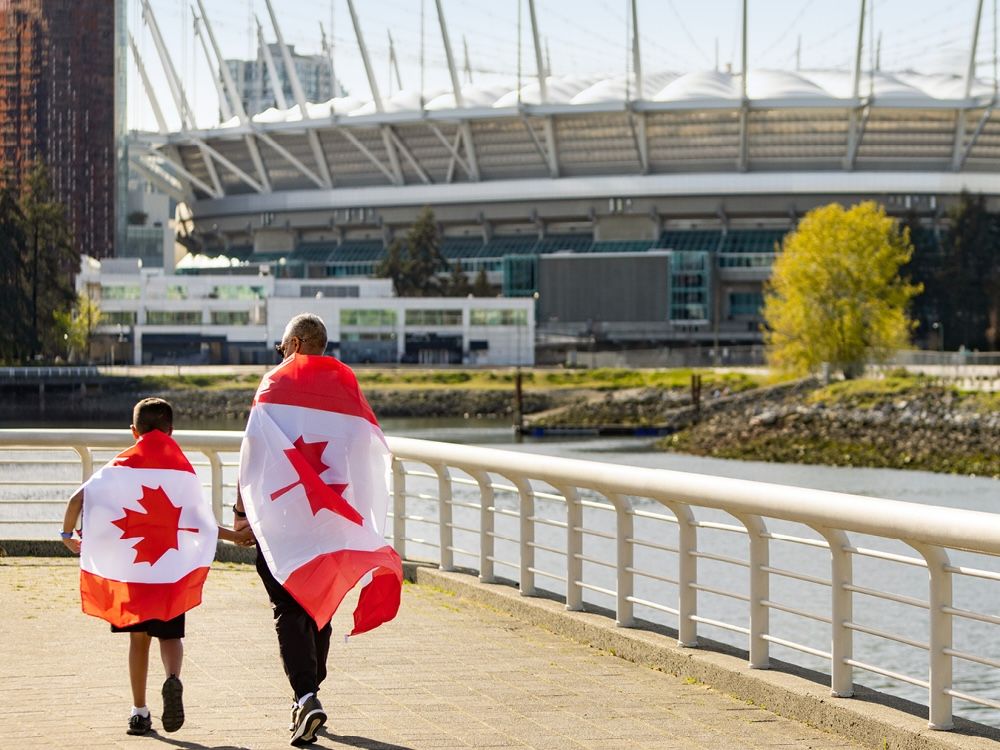
On Wednesday, the first of the lucky winners of the FIFA World Cup Visa presale lottery were notified that they could buy tickets — the first public sale for next summer’s gargantuan sporting event.
More than 4.5 million people endured the arduous process of entering the lottery in September, resulting in a selected few who will be notified by email of a specific 10-minute window for them to purchase tickets over the next few days.
This World Cup will have the most teams, at 48, and games of any edition that has preceded it, and there will be a feeding frenzy for the 6.5-7 million total tickets available for the tournament.
And it won’t just be fans feasting.
Scammers and bad actors are salivating over this event as much as the consumers.
The 2022 World Cup in Qatar featured tens of thousands of scam domains, fake social media accounts, advertisements and apps , all designed to extract either money or personal information from you .
And expect the 2026 tournament in Canada, U.S. and Mexico to be worse .
“There’s so much going on now every day that’s different and new and challenging and impactful, and exponentially so — especially with the advent of autonomous AI, generative AI,” said Jane Arnett, a cybersecurity evangelist at Check Point, a Canadian-based online security firm.
“We used to say, ‘look for typos and look for formatting or bad pictures or things like that.’ But that’s just not what to watch for anymore, because AI is taking care of all of that.”
Any fans who entered the FIFA draw might see an email in their inbox giving them access to the first set of sales. It’s hard to be sure if it’s legit, but the email address should read “no-reply.fwc26@tickets.fifa.org.”
Those who were lucky enough to be selected for the presale had the chance to purchase a maximum of four tickets a game, for up to 10 games — which ran more than $20,000 U.S. for one Reddit poster — and choosing among the tiered categories of tickets. Category 1 were the best seats, and priciest, ranging to the worst, and cheapest, Category 4. But the latter seats were a slim fraction of available seats in stadiums.
Canadian journalist Brad Humber posted the prices for the opening game at BMO Field in Toronto, starting at $495 for the Category 4, all the way up to $2,440 for Category 1. The seating map shows just four small slivers available of Category 4 prices. But prices for subsequent Team Canada games drop substantially in price after that.
We officially have ticket prices & seating map for @BMOField @CANMNT_Official opening match on June 12th next summer.. #CanMNT
— Brad Humber (@djcuse) October 1, 2025
Be prepared to payup as expected (all in CAD$)
Cat 1: $2440
Cat 2: $1735
Cat 3: $1000
Cat 4: $495@World_Cup_Guide pic.twitter.com/gCjnawxYwt
There is no word on how many tickets are available in this first wave, but there are around seven million seats over the 104 matches in 16 stadiums.
A second phase — the “early ticket draw” — will run Oct. 27-31 in a draw similar to the first phase: an online application, then a randomized selection process with applicants getting a time-slot to purchase tickets.
The third window is the random selection draw coming after the groups are determined in the World Cup draw on Dec. 5, finalizing the playing schedule. Fans will be able to submit applications for specific matches after its completion. There will also be tickets made available “on a first-come, first-served basis” closer to the tournament.
And for those unable to secure tickets in the first few windows, there will be an official resale platform set up by FIFA, which goes live on Thursday. It will be the safest way to find tickets on the secondary market.
The preponderance of corporate contests offering access to tickets, like Verizon’s giveaway of thousands of tickets to its cellular customers on Thursday or American Airlines points for tickets program, provides convenient entry points for scammers to separate you from your money. The ads, apps or emails you see can appear indistinguishable from the legitimate ones .
When you can, says Arnett, navigate to the page directly instead of clicking on any hyperlinks. And even then, many pages with URL’s containing World Cup 2026 keywords have been set up years in advance to gain the appearance of legitimacy, using domain aging to avoid appearing like a scam site.
Arnett’s company wrote that “ more than 4,300 newly registered domains bearing the language of FIFA, the World Cup, or its host cities” surfaced across the internet in August alone.
“That’s where most people get, get scammed or go wrong,” said Arnett. “Where it’s actually a different website that’s impersonating the one that you want to be on, and they take your details or your money. So be very careful.”
World Cup ticket prices for the Canadian group stage games in USD
— AP Soccer (@AP_Soccer_) October 1, 2025
Opening game
Cat 1 - $1,745
Cat 2 - $1,240
Cat 3 - $715
Cat 4 - $355
2nd game
Cat 1 - $475
Cat 2 - $355
Cat 3 - $165
Cat 4 - $
3rd game
Cat 1 - $475
Cat 2 - $355
Cat 3 - $165
Cat 4 - $
There are programs available to mitigate your risk , but other tips to avoid getting scammed or have your information stolen is to use a low-limit credit card with fraud protections, and use a virtual private network, or VPN, to protect your information and privacy online.
The best defence, Arnett added, is a biological one.
“Everyone is out there trying to play on your emotions,” she said, “so your best defence is just to take a deep breath and don’t let them.”